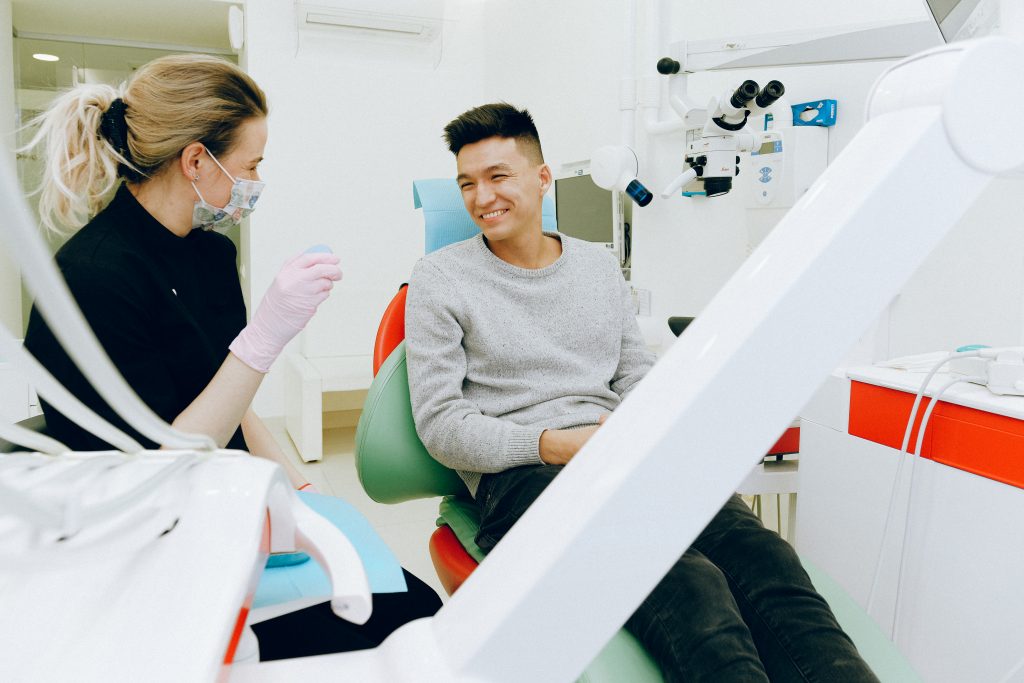Dental health issues in teens can be a real challenge, from the physical pain of tooth decay and gum disease to the fear of getting braces. But there are ways to avoid and overcome these problems. If you follow the advice given here and talk to your dentist, you should find it easier to prevent dental issues.
Dental Health for Teens
Regular dental exams are critical to maintaining good oral hygiene. If your child is a teen, help them make dental appointments in their schedule; so they stick to the habit of seeing a dentist regularly. We have made it a routine to visit our Ann Arbor dentist every six months. It helps my kids and family to prevent severe dental disorders. Here are some other tips to help your teen stay on top of their oral health:
- Brush twice daily and floss once daily. This tip sounds simple enough, but it is something that many teens overlook as they get older and busier. Remind your teens how important this practice is for them, and if you need to, break up the task into smaller chunks of time that fit well into their busy schedules.
- Eat healthy meals and avoid sugary drinks like soda as much as possible; these practices will keep their teeth strong.
- Encourage them to avoid tobacco products like cigarettes and chewing tobacco; such habits can cause discoloration, bad breath, gum disease, cancer in the mouth and throat, etc.
The teen years are critical for establishing good habits that can continue into adulthood; the more you encourage healthy habits early on (like regular dental visits), the more likely they will be to live a life with good oral health!
Root Canals for Teens – Understanding the Symptoms and Treatment Process
If you have pain or sensitivity in your tooth, especially when biting down on it or eating hot or cold food, the chances are strong that you may need a root canal. It is because the pain comes from inflammation in the pulp of your tooth, which is caused by bacteria. A root canal will eliminate this inflammation and permanently seal off your tooth to prevent further infection. While having a root canal can sound intimidating, they are incredibly common procedures, and there is no reason to be afraid of them!
The first step if you suspect that you might need a root canal is to visit your dentist as soon as possible! If left untreated, the infection could get worse and eventually spread throughout your body, causing very serious health problems. Your dentist will be able to diagnose if you have an infected pulp with x-rays and determine whether or not you need a root canal. Once again, don’t worry. This procedure has been done millions of times with great success! The good news is that after this procedure, you won’t experience any further pain in that tooth. The reason why it was bothering you will be gone forever!
To prevent future infections, it is important to brush regularly and schedule regular visits with your dentist, who can catch problems early before they become serious ones.
How to Prevent Orthodontic Emergencies
There are several things you can do to avoid orthodontic emergencies. First, make sure your child’s mouth is healthy. Regular dental checkups are important for this reason. If a toothache or other problem does occur, you’ll be able to identify and fix it before it becomes a bigger issue.
Second, make sure your child has good oral hygiene habits while they are wearing braces or clear aligners. Cleaning their teeth thoroughly every day will help prevent tooth decay and gum disease. Your dentist can also prescribe fluoride treatments if needed, which can strengthen your teen’s enamel, making it more resistant to cavities and breakage.
Your teenager must wear a custom-fitted mouthguard when playing sports. Not only will it protect the brackets and wires attached to their teeth if they get hit in the face, but it will also help prevent damage to the teeth themselves (for example, from a blow to the jaw). Most dentists recommend wearing a mouthguard during contact sports like football and soccer as well as non-contact sports like baseball, where impacts from equipment may occur (such as balls flying off bats).
If you decide not to have your teen wear braces or clear aligners but still want them protected from dental injuries on the field of play then consider using an impact-resistant mouthguard instead of traditional ones for optimal protection!
Avoiding Cavities, Tooth Decay, and Staining
- Tooth discoloration can result from drinking excessive amounts of coffee, tea, and wine. The best way to overcome this is to reduce consumption.
- Sugary foods and drinks can also cause damage to teeth, so these should be avoided or replaced with better alternatives where possible.
- Brushing your teeth twice a day will help keep them clean and healthy. Good fluoride toothpaste is required if you want the best results. Using mouthwash after brushing will also help prevent bad breath and keep your gums healthy too.
- Visiting the dentist regularly will allow any issues or problems with your dental health to be identified early on before they become more serious or expensive to treat later on.
- Drinking through straw limits the amount of liquid that goes directly into the specific area of teeth that have been exposed by receding gums, reducing the risk of decay in this area.
- Your toothbrush should be replaced every 2-3 months or earlier if the bristles start to fray, which means they’re no longer cleaning as well as when they were new!
Dental Health is an Integral Part of Your Overall Health
Dental health is an important part of your overall health. You can maintain good dental health for your children by first teaching them the basics. Teach them how to eat right and teach them how to brush and floss properly. Make sure you are encouraging them and helping them lead by example by doing these things yourself!
Once they are old enough, teach them how to take care of their teeth on their own. Give guidance and encouragement as needed (and always remember that they will make mistakes). After some practice, your teens should be able to take care of their teeth on their own.
However, if you notice bad habits forming or poor dental hygiene in your teens, you must talk to your child about it and help him or her get back on track with better oral hygiene habits. The longer the unhealthy habits go on, the more likely it is for permanent damage to occur, so don’t wait too long!













